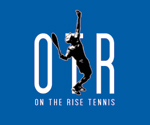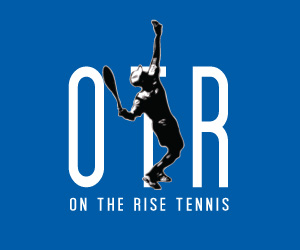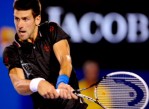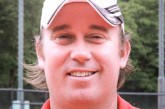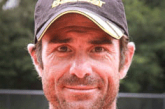 Happy was a visitor to OTR in Hong Kong last year and spent some time conducting a clinic and working individually with some of our junior players. His methodology was en-lighting and all the players gained from his insight. Below is a extract from one of his many articles and we feel it will help any coach or parent in attempting to get the best out of their student or child. Our belief is into instill positive feedback and to create this environment in our lessons.
Happy was a visitor to OTR in Hong Kong last year and spent some time conducting a clinic and working individually with some of our junior players. His methodology was en-lighting and all the players gained from his insight. Below is a extract from one of his many articles and we feel it will help any coach or parent in attempting to get the best out of their student or child. Our belief is into instill positive feedback and to create this environment in our lessons.
If facilitators can create an environment where mistakes are not seen as failures and success is not determined by simply winning the point, then there will be less of the neurosis we now see in the competitive arena.
At present, there exists an aggressive, result-oriented atmosphere amongst most high performance programs all over the world. It is not uncommon for these players to be punished by having to do push-ups or run laps for missing a volley or losing a point. The coaches who employ these tactics justify this process by saying that there are physical benefits to these practices.
While this is undoubtedly true, there are also mental consequences that are not so beneficial.
This is not an effective method for teaching technique. On the short-term, this result-oriented approach will, for sure, get the player’s attention, but the long-term ramifications of such behavior will not bode well for the overall healthy mental development of young people. This aggressive approach shapes their attitudes towards success and failure and gives them the false impression that if I try hard enough I can accomplish any outcome I want. This is untrue. We have no control over outcome or result, no one does. ‘If we did, who would ever choose to miss a ball or make a mistake, much less lose a match?’
As I have said earlier, the mental component is the glue that holds an individual’s game together and facilitators can play a huge role in laying a foundation of mental stability in a player by creating a supportive and loving environment where both winning and losing can be dealt with in equanimity and used to help players improve.
The key to mental frailty is rooted in the environment we create; in our tone of voice; in our ability to accept adversity; in our own emphasis on process over result, and finally, but also crucially, in the methodology that we use. In short, if we want to help players develop mental control, we need to start right at the beginning; the very first time they step onto a tennis court.
